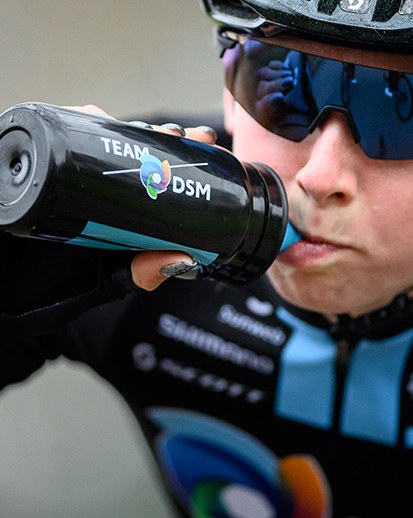Retrospect and outlook
Whereas the Managing Board Koninklijke DSM N.V. before the CEO transfer had three members, the board now consists of two Co-CEOs. Therefore the overall remuneration expenses in 2020 dropped compared to 2019. Further to this, the following considerations should be mentioned:
- Base salary of the incoming Co-CEOs has been positioned below base salary of the outgoing CEO
- Until 15 February 2020, base salary of the Co-CEOs was at the level set for members of the Managing Board (i.e., below CEO level)
- The 2020 STI for the Co-CEOs is based on the actual base salaries paid in 2020
- In 2020, the share units granted to the Co-CEOs in 2017 vested; note that the number of share units granted in 2017 was based on the base salaries applicable as a Managing Board member — this effect will also occur in 2021 and 2022
Following the strategic update provided in 2020, the Supervisory Board has decided that the goals underlying the Short- and Long-Term Incentive schemes will not be adjusted for 2021.
Early 2021, a quick scan was conducted, benchmarking the position of DSM within the labor market peer group as defined within the Remuneration Policy Managing Board Koninklijke DSM N.V. The scan (benchmark) showed that DSM dropped to the lowest position in the peer group as far as targeted total Direct Compensation (Annual Base Salary plus targeted Short-Term Incentive plus targeted Long-Term Incentive) is concerned and is far from approaching the median from below as set out in the remuneration policy. The Supervisory Board has therefore decided as a first step to close the gap to adjust annual base salary of the Co-CEOs to €1,003,625 as per 15 February 2021. This adjustment reflects a step-up towards the base salary of the outgoing CEO and in addition considers the market movement of the peer group and the employees based in the Netherlands. After this adjustment and compared to the quick scan mentioned, the Co-CEOs base salary moves towards the 25th percentile of the labor market peer group whereas target Total Direct Compensation still remains below the 25th percentile.
Although DSM in general has an attractive proposition to attract talent, DSM faces more and more difficulties in attracting and retaining senior leaders (one or two reporting levels below the Executive Committee). This is due to the fact that the remuneration of the Managing Board sets a ceiling especially with regard to Short- and Long-Term Incentives. Together with the fact that the Managing Board’s targeted Total Direct Remuneration positions below the 25th percentile of the labor market peer group, this calls for action. On the one hand to further align actual remuneration of the Managing Board with the policy confirmed by the AGM, and on the other hand enabling DSM to submit compelling and competitive remuneration propositions to attract and retain senior talents that help building DSM’s future success. Hence, in 2021 we plan to begin to explore ways to address such gaps, in order to ensure our remuneration approach and policy continue to support our business ambitions and future goals.







